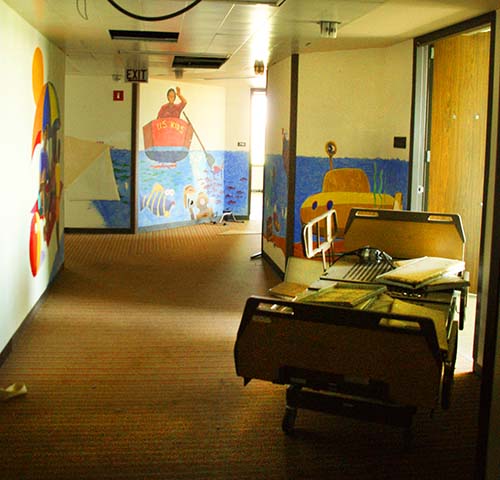
Immeasurable Damage to Public Health
Who will be left to catch us when we fall?
Last week, Robert Kennedy Jr., the new U.S. Secretary of Health and Human Services, announced sweeping cuts that decimated the disease prevention infrastructure of the country.
In a single morning, a quarter of the national staff responsible for ensuring data collection, education, treatment, and outreach were eliminated. Across the country, health workers, scientists, and advocates read the news with dread—not just for their own careers, but for the lives of a generation of U.S. residents.
“Key positions have been cut,” said David Jernigan, PhD, and longtime advocate for those hurt by a runaway alcohol industry, “and we will be paying for it for years.”
The loss of resources, funding, services, and expert advice threatens the alcohol prevention community, but they are not alone. Infrastructure for the prevention of HIV, tuberculosis, asthma, opioid use disorder, tobacco smoking, workplace injuries, hepatitis, and more has been thrown in the bin.
This follows quickly on the heels of the rash of sudden, widespread, seemingly arbitrary cuts to federal grants and more targeted, likely personality fueled assaults on specific universities such as Columbia.
Alcohol Justice Stands With Addiction Science “Clarion Call”
This has led to a fast realization among the public health and advocacy community: working for the public good is no longer sufficient protection from political crosshairs. The current age calls for solidarity. This week, editors of some of the most prominent international addiction medicine journals coauthored an editorial calling for just that. “A Clarion Call to the Addiction Science Community: It’s Time to Resist the Anti-Scientific Policies of the US Trump Administration,” was published this week across 28 different major addiction medicine journals. It decried administration censorship of scientific publications; use of federal research databases to identify perceived ideological enemies; an end to arbitrary and often counterproductive funding cuts; and the conversion of federal health funding to state block grants, which will leave many underserved and underrecognized communities to struggle with health issues that could be prevented at scale. (And, in some cases, block grants permit almost comical incidents of corruption.)
(With the blessing of the authors, Alcohol Justice is archiving the “Clarion Call” letter on our servers.)
Few public health threats obey national borders, and the evisceration of U.S. public health infrastructure likewise is more than just a domestic concern. The authors warn that “perhaps as much as half of [addiction medicine infrastructure] is concentrated in the United States,” and describe a united front of professionals protecting knowledge, capacity, and freedom to combat drug-, tobacco- and alcohol-related mortality. This includes:
- Journals committing to only publish articles that accurately and consistently describe participants’ sex, gender and sexual orientation
- Medical societies’ commitments to ongoing education around and condemnation of the destruction of public health in the country
- A complementary effort to actively educate the public on the benefits of addiction medicine, both research and practice
Importantly, the call does not specify a condition under which these efforts should end. What the call amounts to is a cry, not just for resistance, but for solidarity. It is easy and tempting, in light of the risk to job, reputation, and, in some cases, physical freedom, to do our best while keeping our heads down. But as the authors of this essay emphasize, addiction medicine researchers labor as part of—and for the benefit of—their communities as a whole.
Speaking out and refusing to buckle to arbitrary and fundamentally unscientific pressures to self-censor becomes much easier when those around us are doing likewise. But the “Clarion Call” cannot be the end of the commitment to protect public health. Every resource that is being destroyed at the federal level should be rebuilt at whatever level is possible. Every resource that is not subject to the whims of the current administration should be protected, reinforced, and expanded to supplant what’s lost. The biggest concern is that this initial onslaught is just the beginning.
But as long as researchers, healthcare workers, and community advocates remain committed to compassion, to sheltering those in pain and uplifting those unheard, there remains something more we can do. There will always be many who want to catch the fallen—if you are reading this, we assume you are one of them. In solidarity with our colleagues in the “Clarion Call” letter, among many other concerned and motivated groups, we ask that you speak out every time you can and keep looking for a way to keep our communities safe and healthy.
— Carson Benowitz-Fredericks, MSPH
READ MORE about the value of prevention.
READ MORE – the “Clarion Call” letter.
Header image via Nitram242 on Flickr, used under Creative Commons license.

 English
English Spanish
Spanish